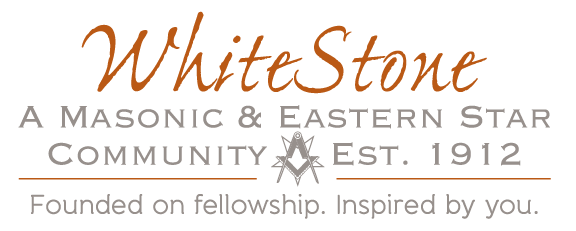If your loved one has recently received treatment at a hospital, their next steps may involve rehabilitation at a senior living community.
“Residents who receive short-term rehabilitation at WhiteStone receive personal care to meet customized goals after a hospital stay,” says Marie Dunn, director of sales and marketing. “They’re given the opportunity to participate in our social activities and wellness programs.”
Short-term rehabilitation can make a significant difference in your loved one’s quality of life during recovery and following rehabilitation. Continue reading to learn more about what to expect and how to make this decision.
What Is Short-Term Rehabilitation?
Short-term rehabilitation is individualized support for older adults after being discharged from the hospital. If your loved one needs ongoing care after a hospital stay, they can be transferred to a senior living community like WhiteStone for rehabilitation.
In most cases, residents who enter short-term rehabilitation are recovering from:
- Surgery
- Respiratory illness
- Injury
- Heart failure
- Stroke
- Joint replacement
Even when the senior has access to a caregiver at home, short-term rehab may be the better option. A resident receives around-the-clock services, medical care and therapies that are much broader than what can be provided at home. Additionally, your loved one will have access to senior living’s convenient amenities, restaurant-quality dining, and the benefits of social interactions.
Stays in short-term rehabilitation range anywhere from a couple of days to a few months. Medicare will cover up to 100 days of rehabilitation, and then, depending on your family member’s progress and needs, they can either transition back home or enter long-term care.
What Care Services Are Offered in Short-Term Rehabilitation?
Common therapies offered at a short-term rehabilitation facility are:
- Physical Therapy – increases a resident’s activity level and improves their mobility. It can also decrease pain and prevent permanent disability due to injury or illness.
- Occupational Therapy – addresses residents’ individual needs and goals around day-to-day activities. These therapies teach techniques for performing on ADLs like dressing, bathing and cooking, even with diminished abilities.
- Recreational Therapy – engages residents in social and leisure activities to improve cognition, mood and function.
- Speech Therapy – gives residents the therapeutic treatment necessary to improve communication skills and address issues with swallowing.
A resident could enter short-term rehabilitation for one particular therapy or for a combination of therapies to address needs.
Preparing for the Possibility of Short-Term Rehabilitation
In a moment of crisis, your loved one is not going to be thinking about what they’ll need for an extended stay in the hospital or in rehabilitation. It’s recommended they keep a hospital bag prepared.
Some items to consider including in a hospital bag are:
- Necessities like:
- Clothes
- Toothbrush
- Hairbrush
- Bathrobe
- Medications
- Eyeglasses
- Important information like:
- List of medications and dosages
- Doctors names and contact information
- Emergency contact
- Insurance cards and identification
- Nonskid slippers and a few pairs of socks
- Entertainment like books, magazines, movies and puzzles
- Cellphone charger
- Spare keys
Collaborating with your loved one to prepare this bag can help ease the transition from a hospital setting to a continuing care retirement community and allow for conversations that will help prepare you for this possibility.
Questions to Determine Your Loved One’s Rehabilitation Needs
A doctor’s recommendation for a stay in short-term rehabilitation may catch you off guard, especially if your family member is eager to return home. Perhaps you think you can care for them without rehabilitation. Or maybe you’re just not sure what facility is right for you.
Asking your physician these questions will help you determine the best course of action:
- Does my loved one need 24-hour care?
- What’s the average recovery time after my family member’s treatment?
- What therapies will my loved one need?
- What medicine will be prescribed, and what doses do they require?
- What side effects are possible with their medications?
- What signs should we look for to determine if my loved one needs medical attention?
- What outcome should we expect from rehabilitation?
Assessing Care Needs at a Senior Living Community
A stay at a continuing care retirement community can reveal to a caregiver and resident the many advantages of senior living. The continuum of care that senior living communities provide can be appealing to seniors concerned about their future care needs.
Experiencing a continuing care retirement community’s activities, comprehensive services and amenities, and preventive wellness programs can be fulfilling too. All this can cause residents to rethink their current living arrangement, making community living an attractive option.
How WhiteStone Can Support You as You Age
WhiteStone is a continuing care retirement community that offers a full continuum of care, including skilled nursing, rehabilitation and in-home care. At WhiteStone, your loved one will receive personalized health services that will change according to their needs. Get in touch with us to learn more about life at WhiteStone.

